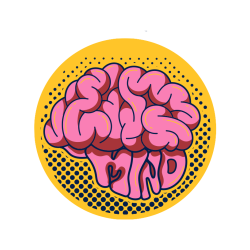One Man’s Journey
To say that Williston caters to the transcendentalist is not entirely accurate. The very nature of the college preparatory school is to raise the individual to walk the straight and narrow, onto college, a well-paying career, and a life as an upstanding member of society. Nothing is wrong with this, but to say that each one of those one-hundred-plus students graduating on similar courses every year is a special snowflake might be pushing the definition of “individual” just a little bit.
Transcendentalism, at its core, champions the triumph of the individual, preaching self-reliance and individualism above conformity and dependence. However, the days of living unplugged on Walden Pond are relatively implausible in the 21st century, particularly while functioning amidst the technology and economy of modern society. However, more modern interpretations of this philosophy translate fairly well to the confines of our lives at Williston, should we wish to use them.
It all started with photography. After years of primarily digital work, I had become dissatisfied with the routine of conceptualization, shooting, and printing ad nauseam. When the creative process can be realized with a series of well-placed mouse clicks and prescribed procedures, it becomes all too easy to enter into an intellectual rut. While the digital, studio-based realm is the axis of the modern photographic age, it lacks the vintaged tangibility of its forbears.
When I stepped out of the studio, back into the analog and natural world, my journey of artistic integrity crossed new borders. Standing freezing on a snowy day, chasing a few hours of clear skies and sunlight, and occasionally risking physical integrity brought vitality back not only into my artistic pursuits but also into my overall life. Even when processing, I managed to work with new vigor between the precision of film development and the obsessive purity of historically-processed printing. The darkroom sink was my Walden, and the print before me my handcrafted cabin.
However, the true self-reliance in the Williston bubble comes from subverting the very pillars of industry we are raised to uphold. By unshackling myself from my debit card and reasserting ownership over my discretionary spending, I awoke to the wonders of the unadulterated life. All too often we find ourselves bound to the machine, be it through frequent additions to our stylish wardrobes or $4 cappuccinos on a daily basis. While these indulgences are hardly detrimental in moderation, they lend themselves to financial gluttony.
We live in an age of crippling student loans and inter-generational inherited debt. Many among us live in or near the upper levels of society, and thus ask the question: “who are we to whine about spending?” This poor man’s issue is none of our own. The issue, however, is universal, regardless of socioeconomic status. My cappuccino is analogous to your Beemer.
Only by stepping out of consumerism can we experience the true beauty in the world. Like a recovering alcoholic regaining sensitivity to the sensations and realities of the sober world, when we live for lasting experiences over evanescent substances and possessions, we appreciate the intrinsic value of our fleeting lives. When everything is over and death looms imminent, the mountain sunrise and a lover’s embrace matter infinitely more than Dulce & Gabbana suits and Starbucks Frappuccinos.
It is quite possible to pursue self-reliance and intellectual enlightenment at Williston, regardless of the limitations placed upon us. To step away from the mass process of our mechanized society, whether it be economic or artistic, luddite or merely environmentally sustainable, is to achieve a level of independence we rarely experience. Some of us run up mountains for health and fun, some labor in the darkroom and the field, and others till their community garden. Whatever one’s source of self-reliance may be, it is likely achievable here at Williston.











